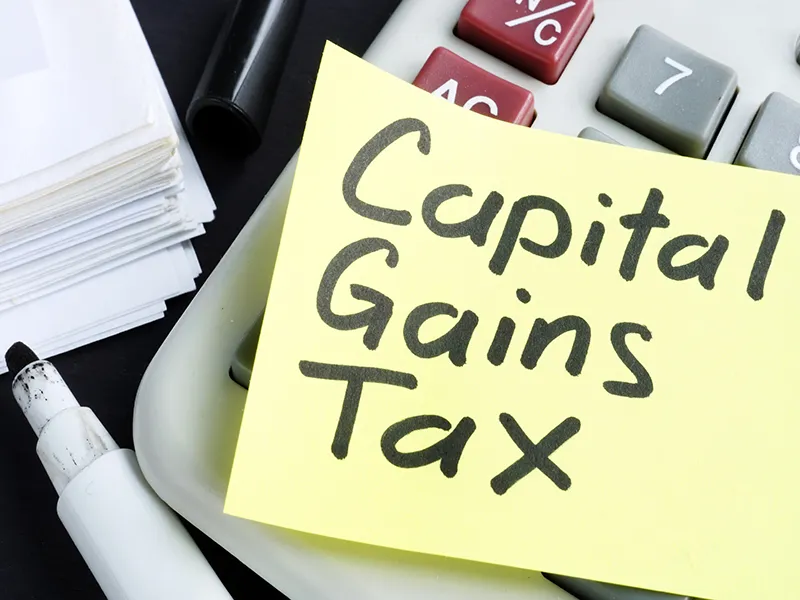
Trading and investment in equity shares have gained huge popularity in recent times. This has also created a huge increase in the incidence of capital gains on the sale of these shares. It is often noticed that many investors are not aware of the applicability of the correct tax provisions on the sale of equity shares. The terms long-term and short-term capital gains or loss although are quite common, understanding them correctly is quite essential to ensure that the investors and traders do not have to face any notice or penalties from the Income Tax Department regarding their investments in share markets.
Therefore, let us discuss the meaning of short-term capital gains on equities and related provisions for the same.
What are capital gains on equities?
As per the provisions of the Income Tax Act, 1961, any gains or losses from the sale of a capital asset will be treated as capital gains or losses. This is also the fourth head of income as per the Act under which the income or gains of the taxpayer are taxed. Section 2(14) of the Income Tax Act defines the term ‘capital assets’. According to this section, any shares or securities whether listed on a recognized stock exchange or not will be included under the purview of this section.
What is short-term capital gains or loss on equities?
The treatment of capital gains or loss on equity shares as short term or long term will depend on the period of holding of such shares. The period of holding is the difference between the date of purchase of shares and the date at which they are sold.
For equity shares to be classified as short-term capital assets, such shares have to be held for a period of less than 12 months. This condition is applicable in the case of equity shares that are listed on a recognized stock exchange. In the case of unlisted equity shares, the required period of holding to be classified as a short-term capital asset is 24 months.
How are listing gains from IPO treated?
In case of the sale of shares immediately on the listing of the shares on stock exchanges, the same will be considered as Short Term Capital gains as the holding period of shares is less than 12 months.
The short-term capital gains on equity shares are calculated as per provisions of section 111A. For the sake of this section, the short-term capital gains on the sale of equity shares are categorized under two broad categories.
1. Short-term capital gains as per Section 111A
The sale of equity shares under the following situations fall under the ambit of section 111A.
- Sale of equity shares listed on the recognized stock exchange on which Securities Transaction Tax (STT) is paid.
- Sale of units of equity-oriented mutual funds through a recognized stock exchange on which STT is paid.
- Sale of units of a business trust
- Sale of equity shares or units of a business trust or equity-oriented mutual funds through a recognized stock exchange located in any International Financial Services Centre provided the consideration is paid or payable in foreign currency.
2. Short-term capital gains on cases not as per section 111A
The sale of equity shares under the following situations fall outside the ambit of section 111A.
- Sale of equity shares that are not listed on any recognized stock exchange.
- Sale of shares other than equity shares
Short-term capital gains on the sale of equity shares are taxable at a flat rate of 15%. This rate is applicable on short-term capital gains as per section 111A. In the case of short-term capital gains arising on the sale of shares outside the purview of section 111A, such gains are taxable as per the applicable slab rate of the assessee. To understand the concept of STCG better, let us take the following example.
Mr. A sold the shares of Company A listed on BSE at Rs. 5,00,000. These shares were held by him for a period of 6 months and were purchased at a price of Rs. 4,60,000.
In the above case, as the shares were listed, such sale will fall under the ambit of section 111A. The STCG for the sale of these equity shares is Rs. 40,000 (500000-460000). The applicable tax rate on this STCG is 15%. Therefore, the tax payable is Rs. 6,000.
As discussed above, STCG is taxed at a flat rate of 15%. However, unlike regular income, the assessee does not get the benefit of deduction under Chapter VIA. This includes deduction from Section 80C to section 80U. This condition is applicable only on STCG taxed under section 111A. Therefore, in case of assesses that have STCG that falls outside the purview of section 111A can claim deduction under Chapter VIA.
Applicability of deductions and exemptions on STCG
As per Section 111A of the Income Tax Act, you can claim tax deductions on Short Term Capital Gains (STCG) to reduce your tax liabilities. You can file for short-term capital gain tax exemptions under Section 80U and Section 80C, you can claim tax deductions in line with your investments under these sections of the IT Act. These deductions or exemptions can be claimed only under Section 111A.
However, no deduction is made available to individuals under Sections 80C on their tax on STCG on shares that covered under Section 111A. But individuals may claim such deductions on short-term capital gains tax on shares that are not covered under Section 111A.
If your total income including STCG after applicable tax deductions is below Rs 2.5 Lakh, then your total tax liability is nil and also no liability will arise us/ 111A as deduction up to the basic tax exemption limit is allowed; Deductions from STCG under section 80C-80U. Income tax Laws do not allow any deduction under section 80C to 80U.
What is the treatment of Short Term Capital Loss?
Unlike long-term capital gains that were exempt prior to the budget of 2018, STCG has always been taxable. Therefore, STCL on the equity shares can set set-off against any STCG or LTCG payable by the assessee. If there is no STCG or LTCG in the current year, it can be carried forward for a period of 8 years. Such STCL can be set-off against any STCG or LTCG payable by the assessee in such 8 years.
Conclusion
Short-term capital gains in equity shares are taxed at the rate of 15% in the case such shares are listed on a recognized stock exchange whereas in other cases, they are taxed as per the applicable slab rates of the assessee. The taxation of equity shares held for the short term is higher than that of shares held for the long term. Hence, it is important to understand the taxation on short-term capital gains to ensure proper tax planning.
FAQs
The sale of equity shares is usually treated as capital gains. However, in some cases (like the investor or trader engaged in a non-speculative business) where the trading or investment income from equity shares is considered to be a business by the trader, such income can be treated as business income. It is to be noted that the choice of treating the income from the sale of equity shares as capital gains or business income depends largely on the investor. However, once opted, the taxpayer does not have the option to change the tax treatment for the same.
No. There are no exemptions available on STCG. Taxpayers can claim basic exemption available based on the type of assesses.
Deduction under section 80C is not available on STCG as per section 111A. In other cases when STCG is not charged as per section 111A, deduction under section 80C is allowed.
The format for calculating short-term capital gains is,
-Full value of consideration xxx
-Less – Cost of acquisition xxx
-Less – Cost of transfer and improvement cost xxx




















